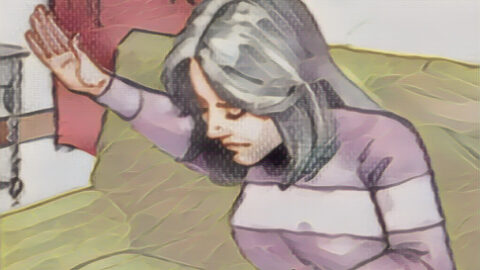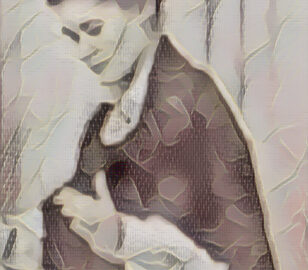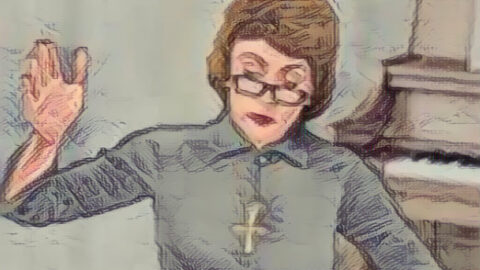Before we step into the heart of our sunday adventure, let me introduce the dear family and friends who filled my childhood with such colour and delight. There was my father, Mr. Harrison, a tall and dignified gentleman in his early forties, always neat and proper in his best tweed jacket. He was a schoolmaster, and his kind but firm manner made him much respected. My mother, Mrs. Harrison, was a gentle lady of thirty-eight, with kind blue eyes and a determined chin. Her auburn hair was always perfectly arranged, and she was both loving and sensible, though she could be quite strict when the occasion called for it.
My sisters were Susan, the eldest at twelve, who loved her books and always spoke with perfect grammar; Margaret, ten, who was lively and full of laughter, her freckled nose wrinkling with every giggle; and little Angela, just seven, who was shy and sweet, always holding her doll tightly, even in church. As for me, I was nine, the only boy, with sandy hair and a curious mind, never quite as well-behaved as Mother hoped.
Among my friends was Peter Thompson, also nine, a quiet and thoughtful boy with dark hair and gentle ways. His younger sister, Susan Thompson, was eight, a spirited girl with neat plaits and a determined nature. Their father, Mr. Thompson, was a tall man with a hearty laugh and a fondness for modern art, while Mrs. Thompson was graceful and kind, known for her gentle but firm discipline.
These were the people who made up my world, each with their own ways and tempers, their laughter and their lessons. With them, every Sunday morning became a little story, played out beneath the ancient arches of St. Bartholomew’s Church.
Sunday mornings in our village were always special, a parade of polished shoes, neat collars, and the gentle scent of lavender water mingling with the musty pages of hymn books. The church bells, old and grand, rang out across the rooftops, calling everyone from their breakfast tables and garden gates. Our family, the Harrisons, never missed a service. Father, in his best jacket, would lead us—myself, my three sisters, and Mother—down the gravel path, our footsteps making a cheerful crunch as we walked together.
St. Bartholomew’s Church stood proudly at the centre of the village, its stone walls weathered by many years of English rain and laughter. Inside, the pews shone with beeswax, and the stained glass windows cast colourful patterns on the floor. The organist, Mr. Wilkins, always arrived early, his bicycle leaning against the gate, and the first notes of “All Things Bright and Beautiful” would float through the open doors as we entered.
I remember the quiet that fell as Reverend Cartwright, our vicar, climbed into the pulpit. His deep, steady voice filled the church, and even the youngest child would sit up straight, holding a prayer book with careful hands. My sisters would arrange their hats just so, while I, the only boy, wriggled in my seat, feeling the starched collar of my shirt against my neck.
Mother, always watchful, kept a careful eye on us all. She believed in the importance of good behaviour, and her reputation for discipline was well known among the village ladies. I once heard her say to Mrs. Jenkins, “A firm hand and a loving heart, that is the best way, Edna.” She herself had learned this from her own childhood, and she was never slow to correct us when we needed it.
It was Mother who usually took care of discipline for my sisters and me. I often felt a mixture of embarrassment—being the only boy, I found it rather trying—and relief, for Father’s rare interventions were always very serious indeed. His punishments were reserved for the most serious misbehaviour, and the mere mention of “a word with your father” was enough to make even the naughtiest child behave.
I believe Father’s own parents, the stern Mr. and Mrs. Harrison of Yorkshire, were not much given to such punishments, except perhaps when he was very young. But when something was truly serious, Father would not hesitate to do what he thought was right. Yet, the memory I wish to share is not of a punishment from either of my parents.
I grew up at the very end of what some might call the great age of the English spanking, in a quiet corner of the country where, even as times changed, the old ways still lingered. The village was a patchwork of thatched cottages, tidy gardens, and the gentle hum of bees in summer. On Sundays, the world seemed to slow down, as if time itself listened to the vicar’s sermon.
My parents were both well-educated—Father a schoolmaster at the local grammar school, Mother a former nurse who stayed at home until we were all safely at school. My friends’ parents were a mixture of professionals and farmers, their hands either strong from work or stained with ink from ledgers.
Each family had its own ideas about raising children, but the results were often much the same: some believed a child’s will must be shaped to fit the ways of the past, while others thought self-discipline was the best protection against the world. In either case, a spanking was the usual remedy, though it took different forms in different homes. The implements ranged from wooden spoons to hairbrushes, and the rituals were as varied as the families themselves.
A few of the more modern parents—like the Parkers, who had a new motor car and enjoyed jazz records—did not believe in such methods. When the subject came up, some of my friends would say how lucky they were, while others kept quiet, not wishing to seem different. The playground was a place of whispered secrets and quiet comparisons, and the question “Did you get it last night?” was as common as marbles or conkers.
From my earliest days, I felt a strange curiosity whenever the subject was mentioned. I disliked spankings, for in our house they were never small matters, always leaving one in tears and with a sore reminder for the rest of the day. Yet, whenever I heard talk of a “bottom warming,” my heart would beat faster, and I would listen with a mixture of fear and interest.
I remember the first time I heard about spanking in a story—long before I could read myself. An older child, Michael Turner, read aloud a tale about a witch and various school punishments, including the dreaded switch. The cover of that book is still clear in my mind: a tall figure in a pointed hat, standing over a row of nervous children. I should like to share with you one of my earliest memories of such an event, recalling as many details as I can.
My companion in this story is Peter, a quiet boy of my own age in our infant class. Our parents, both friends through their work, thought we would make good playmates. So, one Sunday after church, I was told I would spend the afternoon at Peter’s house. I remember the walk there, the sun shining on the windows of the new houses, and the fresh scent of cut grass in the air.
Peter’s home was much more modern than ours, filled with interesting objects and what I now know as modern art. There were colourful paintings on the walls, a record player in the corner, and a lamp shaped like a rocket. I was both impressed and a little shy, feeling as though I had stepped into a different world.
We began to play with toy cars—shiny little models of Jaguars and Minis, their paintwork gleaming in the afternoon light. Or perhaps it was soldiers, lined up in neat rows on the carpet. Peter’s younger sister, Susan, a year younger than us, ran into the room, her hair in tidy plaits and her cheeks pink with excitement. Peter hurried to his father, but Mr. Thompson, a tall man with a cheerful laugh, said he must share, and so we continued our play.
































